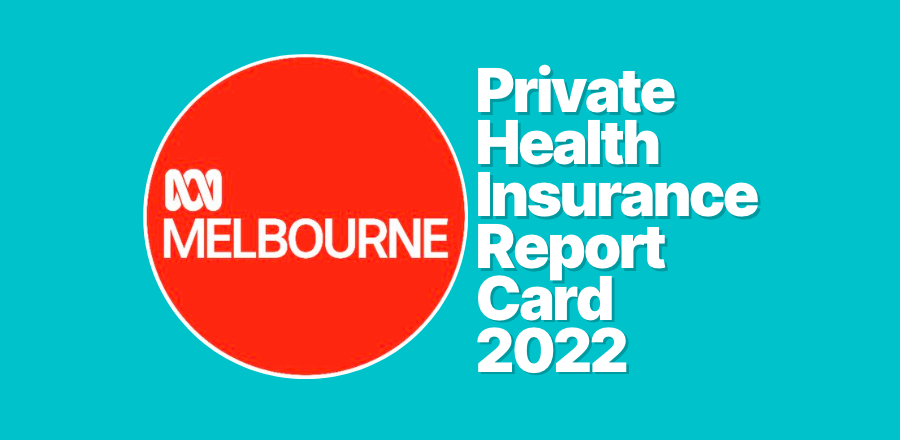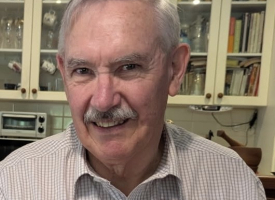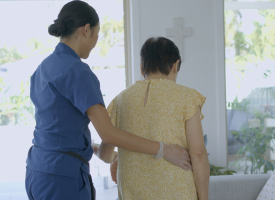AMA Transcript on Private Health Insurance Report Card 2022 on ABC Radio, Melbourne
Transcript: AMA President, Professor Stephen Robson, Outlet: ABC Radio Melbourne, Tuesday, 20 December 2022
Subject: AMA Private Health Insurance Report Card 2022

ALI MOORE: If you've got private health insurance, do you think that you are getting value for money? Well, it might surprise you to learn that, according to the Australian Medical Association's private health insurance report card, some funds are more generous than others. Professor Steve Robson is President of the AMA. Professor Robson, good morning.
STEVE ROBSON: Good morning, Ali.
ALI MOORE: Your report card has found quite a variation in what private health insurers pay in benefits to patients. So are we talking variations even for the same procedure?
STEVE ROBSON: Yes, we certainly are. And the example we give is, of two patients, both having the same operation done by the same surgeon in the same private hospital, finding that they can get up to $700 difference in the amount they get back from their health fund. And that's a situation that has us scratching our heads. We don't think it's particularly fair for the people who spend a lot of money on their private health premiums. And we think it's time it was really dealt with fairly.
ALI MOORE: And we should clarify, I assume, that same surgeon, same hospital, same procedure and same bill.
STEVE ROBSON: Yeah. So certainly if the surgeon charged the patient the same amount that they can potentially have up to $700. And it's more for other procedures. Indeed, even simple things like a single hernia repair, it can be hundreds of dollars. So there's a lot of variation. And I think patients don't understand this. And taking out private health insurance is a very complicated and bewildering experience. So we think it's time that we simplify it and make this fair for Australians.
ALI MOORE: Well, how do you do that? And indeed, what's the official explanation for why there is such a variation given that everything else remains equal?
STEVE ROBSON: There are a mix of health insurers in the country. Many years ago, health insurance firms were mutuals. It meant that the money that went in was spent and after administration was paid back out and getting to the patients. But with the sale of Medibank years ago, the majority of health insurers are now for profit, so they have a responsibility to shareholders or their owners. And that's changed the equation, changed the way that they do business and not necessarily for the benefit of patients.
And at the moment there's a huge array and a mishmash of different regulators, and most of the regulators, like AHPRA, for example, are more concerned with the financial viability of a health insurer than patient outcomes. And we think that needs to be flipped. We think it needs to be turned on its head and we need a simpler system, a simpler umpire who can say, well, actually this is all about patients getting great care. Let's focus on that.
ALI MOORE: So how do you do that? What does that system look like? How different to the one we currently have?
STEVE ROBSON: So at the moment there are various different regulators all concentrating on different aspects of the way that private health insurance runs. We think that's inefficient and we think, again, no single person has their eyes on the main aim, which is patients getting good care. And we think it's time for an independent umpire, a health- private health insurance ombudsman-like role and authority that can look at everything from premium rises, to outcomes for patients, to what patients get back. And deal with all the various parties at the moment who all have a small stake in regulating private health insurance without one oversight, overseeing body. And of course, private health insurance is such a big part of many Australians lives, they spend a lot of money on it. We want to make sure that they get fair care and good value for money.
ALI MOORE: Is that a case, though, of being careful what you wish for? Because any overarching body like that would probably have to also look at what doctors charge
STEVE ROBSON: Well, we're all for that. The AMA is all about transparency. I was one of the people on former Health Minister Greg Hunt's advisory group that came up with the cost finder website. We're all about patients getting good value for money. And if there are doctors who are charging a lot, then this would be another mechanism that we could look at how to solve that issue for patients and make sure the value proposition of private health insurance is really strong.
ALI MOORE: So if you're trying to weigh up, you know, what private health insurance to take or indeed even if it's worth taking it, where do you go? And how do you work out ahead of time whether that knee operation will give you how much back or comparing, you know, what you might get back for any sort of procedure across different health funds?
STEVE ROBSON: It is incredibly complex, Ali. And even doctors, the people who provide the service struggle with trying to work out what their patients are going to get back if they have different types of operations. And that's a major problem because we want transparency around what patients will face if they have a planned operation. So there are organised- independent organisations, like Choice, who have some resources. We certainly have some resources on the AMA website that patients might want to have a look at.
But at the end of the day it is perplexing. It's very difficult to navigate these. And of course with hundreds of thousands of Australians waiting for planned operations in public hospitals, there's a level of anxiety, a lot of people can't see, can't work, can't move, have pain and need this treated, and they're worried about the length of time it will take to get care in a public hospital. So they're vulnerable and they're looking to take out private health insurance. They look and it's extremely difficult to navigate the choices they have to make.
ALI MOORE: And so would a health insurance ombudsman or a new system, as you're talking about, resolve that issue?
STEVE ROBSON: We think there's significant potential for those sort of efficiencies to come into the system. If you go to AHPRA at the moment, the prudential regulator, they're very, very concerned about cash reserves and so on and business practices of health insurers. But they couldn't really care less about whether you're getting value for money and what you're going to get back for a procedure.
An independent authority could be relatively simple and do a lot of these tasks. We think that, with such a huge number of people - a quarter of a million Australians - took out health insurance this year for the first time because, largely, I suspect, because of the shemozzle that we're seeing in public hospitals. And they need to know that there is someone who has their interests at heart and is trying to help and make the navigation simple. So we think a lot of these functions could be done by such an authority.
ALI MOORE: I found it interesting that you, as you just said, your review also did find that, well, profits are up, but on the back of increased member numbers, particularly given what happened in COVID. And I take your point that public hospitals are, you know, stretched as we are constantly talking about. But given that so much was shut down during COVID, you would think that maybe people had been turned off private cover.
STEVE ROBSON: I think that there was a lot of confusion at the peak when a lot of elective surgery closed, but that is an unlikely thing moving forward. And what has been left is an enormous backlog, hundreds of thousands of operations yet to be done across public hospitals that are, again, struggling to meet demand due to staff resourcing and so on.
So I think we've landed on a spot now where a lot of families are saying, wow, I might never get my eyes fixed, I might never be able to walk again. I think I'd better take out private health insurance. And of course, while the premiums are still being paid to private health insurers, they were not paying out because people couldn't have surgery. So the war chests of the various private health insurers have picked up enormously, to the point where they're starting to get a tip back to patients. Some patients are starting to get cheques of $100 and things like that, saying, look, wow, we really are rolling in cash. Have a tip from us. But we think there's got to be a better system than that, Ali.
ALI MOORE: Well, I think there's a lot of people who think there's got to be a better system. So it'll be interesting to see whether you get some response to this call. Professor Robson, thank you for talking to us this morning.
STEVE ROBSON: It's a pleasure, Ali.
ALI MOORE: Professor Steve Robson there, President of the Australian Medical Association.



